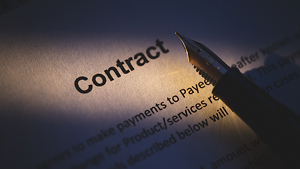Updated Monday, August 30, 2021
Each year in the United States, consumers and businesses lose billions of dollars to fraud and scams. According to the Better Business Bureau’s Scam Tracker data, the number of cases of fraud reported continues to climb.
From online romance and puppy purchase scams to home improvement schemes and identity theft, scammers use social engineering and often play on emotions to trick their victims out of their hard-earned money. We don’t know how many people are actually victimized by scams, since not everyone reports the fraud, but we do know younger people report losing money to fraud more often than older people.
Let’s take a look at the most common scams of the past year:

1. Employment scams moved into the top spot as the riskiest scam, especially for members of the military, veterans, and students. Because employment scams target a large number of people, they tend to result in significant monetary loss.
Here’s a typical employment scam. A job offer comes with high pay and options to work remotely and with flexible hours. Sounds too good to be true, right? In order to get the job, a candidate must complete forms that require personal, sensitive information and may be required to purchase equipment with part of the proceeds of what turns out to be a fake check.

2. Online purchase scams rose dramatically in 2019. Pets are still the number one online purchase trick, and romance scams are shown to be the riskiest for women ages fifty-five to sixty-four.
The majority of online scams of all types occur when a payment is made online in exchange for goods or services, but nothing is delivered. The most common products promised, but not delivered once payment is made, include pets, automobile products, clothing, cosmetics, electronics, nutrition, furniture, and concert or event tickets.
Romance scams continued to rise in rank with consumers losing money 44 percent of the time.

3. Fake check/money order scams are a big part of employment, investments, sweepstakes, and other scams. Here’s how it works: A check is sent to a consumer that contains an accidental overpayment or other overage. The scammer asks the consumer to wire back the excess money. The check appears real and clears, so the consumer thinks it is okay to withdraw the funds, but weeks later, the bank discovers the check is phony. The consumer now owes the withdrawn funds to the bank.

4. Home improvement scams come out of the woodwork, especially following a major storm, flood, or other severe weather-related catastrophe. Caution must be used when hiring a contractor, as scams can happen at any time, so be wary of high-pressure sales tactics, up-front fees, and fly-by-night businesses.
Home improvement scams can start with a knock on the door, a flyer, or an ad. The contractor may offer a low price and/or a short timeframe for completion of a project.
Often, scammers will claim to be working in your neighborhood on another project; they may say they have leftover supplies. Or, they may accept your upfront deposit and then never return to do the job. Oftentimes, following a natural disaster, scammers persuade homeowners to sign over their insurance payment for intended repairs (which often fail to be completed).
Consumers must watch out for red flags. Say no to cash-only deals, high-pressure sales tactics, high upfront payments, handshake deals without a contract, and on-site inspections.
5. Scams related to disasters:
As the damage done by Hurricane Ida is revealed, generous donors will help by donating to disaster relief charities.
BBB’s Give.org recommends that contributors take measures to ensure that their donations are used appropriately. Donate to established and experienced disaster relief groups as they are more likely to provide assistance efficiently and effectively than newly established efforts. To help verify a relief organization’s trustworthiness, see if the BBB Charity Report shows it meets the 20 BBB Standards for Charity Accountability.
For additional tips and assistance, see Give.org‘s advice on donating for Hurricane Ida relief.
DOs and DON’Ts for Tripping Up Scammers
DON’T send money to someone you have not met face-to-face.
DON’T click on web links or open attachments in an unsolicited email.
DON’T believe everything you see. Scammers are great at mimicking official seals, fonts, and other details. Just because a website or email looks official does not mean it is. Even caller ID can be faked. Check it out.
DON’T buy online unless the transaction is secure. Make sure the website has https in the URL and a small lock icon on the address bar. Even then, the site could be shady. You can check out the company first at BBB.org.
Be EXTREMELY CAUTIOUS when dealing with anyone you have only made contact with online.
NEVER share personally identifiable information with someone who has contacted you unsolicited.
DON’T respond to pressure to act immediately.
DO use SECURE, traceable transactions when making payments for goods, services, taxes, and debts.
WHENEVER POSSIBLE, work with businesses that have proper identification, licensing, and insurance.
DO be CAUTIOUS about what you share on social media.




